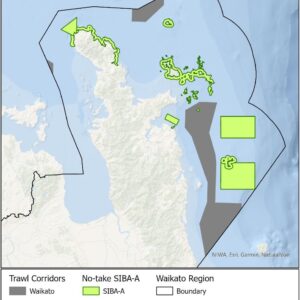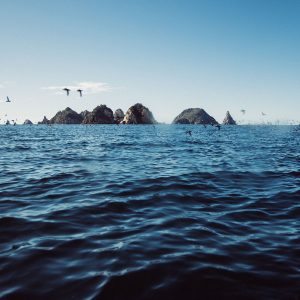After years of Ministry for Primary Industries (MPI) inaction over fishing regulation breaches, over-fishing, fish dumping and more, now it appears MPI has been asleep at the wheel on land as well.
News this morning of yet another appalling breach of animal rights show the terrible state some of the nation’s animals are kept in, but also makes it clear that MPI has failed on all fronts to police the industry it is supposed to oversee.
LegaSea spokesman Scott Macindoe says MPI’s restructure must be the start of systemic change within the ministry.
“MPI has failed our fisheries, our farms and the people of New Zealand who expect to see a well managed and maintained primary sector not the wild west we see before us. When it falls to animal rights activists and members of the public to reveal these crimes we have to ask: where was MPI and why isn’t it doing its job?”
The government is considering whether or not to put electronic monitoring in place on industrial fishing vessels to oversee the fisheries industry. LegaSea says this should be an easy decision.
“When MPI itself acknowledges that half the fishing fleet would be out of business if they had to stick to the rules we know that the management regime has failed to do its job. Putting cameras and tracking on fishing boats should only be the start of the reform. MPI needs to be overhauled from top to bottom and the Quota Management System needs to be thrown on the scrapheap of history. If we can’t police the industry then new rules and powers need to be drawn up and we can’t wait any longer.”
LegaSea calls on the Minister for Primary Industries and the Minister of Fisheries to sit down with Cabinet and put together a comprehensive package that will rebuild the nation’s trust in MPI.
ENDS
For more information please contact:
Paul Brislen
TIMELINE OF EVENTS
June 2018
Footage of a Northland farmer beating animals with a steel bar emerges. MPI prosecuted 5% of the nearly 700 animal welfare complaints it received in 2015.
Forest & Bird uncovers 50 commercial fishing boat skippers were unwilling to take observers on board despite being obligated to do so under the Act. MPI has had to prosecute 10 skippers since 2009.
May 2018
A major investigation into the fishing industry by Stuff’s investigation team reveals an industry rife with “modern day slavery”.
A leaked report reveals some of the country’s largest fishing concerns have been under-reporting their catch of hoki by hundreds of tonnes.
April 2018
The Environmental Defence Society (EDS) releases a report into the destruction of marine bird life and mammals by commercial fishing interests.
March 2018
The Minister of Fisheries announces a reduction in the number of crayfish that can be taken from the CRA2 region.
December 2017
The government announced changes to the structure of the Ministry for Primary Industries(MPI) which sees the creation of four separate divisions, one of which will oversee Fisheries.
September 2017
The report on cameras on fishing boats, dismissed by Primary Industries Minister Nathan Guy, had been described as “robust” by a top ministry science advisor, emails show.
June 2017
A new leaked MPI report suggests the cameras being installed on boats by the industry-owned business, Trident, won’t have the resolution needed to provide footage able to be used in court.
April 2017
University of Auckland researchers reveal MPI refuses to release information relating to 14 more operations that detail the Ministry’s investigations into reporting and fish dumping.
MPI’s relationship with industry questioned further after it is revealed MPI has outsourced administration and data management for large parts of its daily activity to a company wholly-owned by the fishing industry.
The Ombudsman’s Office has forced MPI to reveal that the legal advice it relied on to avoid prosecuting those industrial fishers filmed dumping fish doesn’t exist and never had.
March 2017
People who dive or fish for crayfish think stocks off the northeast of the North Island are in bad shape, according to a survey.
December 2016
MPI forced to reveal that only four cases of fish dumping have been brought before the courts since 2009.
November 2016
MPI forced to admit that up to 80 percent of the cameras installed on snapper trawlers to police fish dumping failed during their first three months of use. Footage from some vessels has been missing for up to a month.
September 2016
Heron report reveals MPI decision not to prosecute was “flawed”, recommends changes to the way MPI reacts in future. The report also shows MPI was fearful of the reaction by the public and the commercial fishers themselves if they did prosecute.
The report also reveals senior MPI managers believe dumping of fish is so widespread half the inshore trawl fleet would go out of business if the law was enforced.
August 2016
Crayfish numbers are so low they are no longer contributing to the ecology of the Hauraki Gulf and are “functionally extinct” according to a marine scientist.
May 2016
University of Auckland’s catch reconstruction report released. New Zealand’s fishery catch of the last 50 years estimated at 2.7 times more than reported. Report attacked by industry as being misleading.
LegaSea respond to the report calling for an urgent review of the QMS and of MPI’s role in overseeing the fishing industry. EDS call for a wider review of NZ’s fisheries management system.
Government appoints Michael Heron QC to review decision not to prosecute those filmed dumping fish. LegaSea says the Heron review is not enough, only a full review of the QMS will be enough to allay public concerns about Ministry capture by the fishing industry.
The catch reconstruction report also refers to MPI’s own investigators’ concerns about the level of fish dumping for the first time.
MPI awards contract to place cameras on boats to monitor for illegal fish dumping and under-reported catch of protected species to Trident, a company wholly-owned by the fishing industry.
LegaSea questions who is running New Zealand’s fisheries and urges the Minister to establish an independent inquiry with broad terms of reference.





